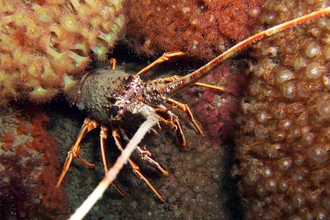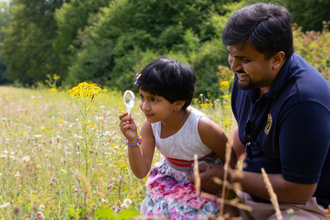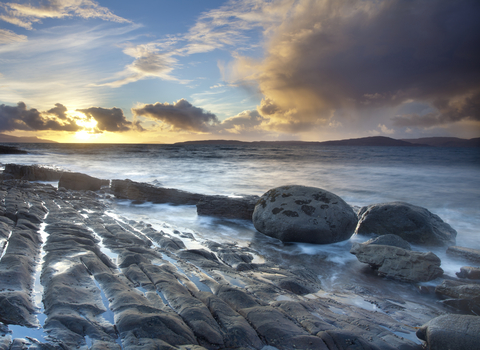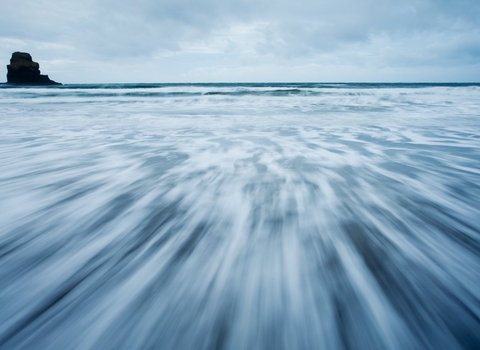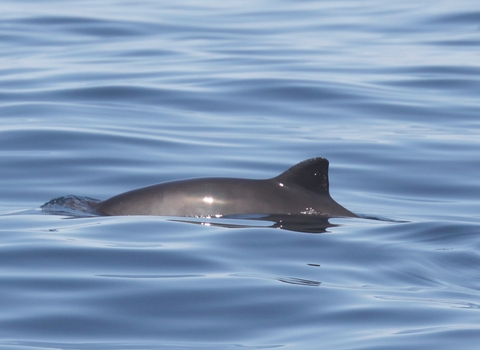
Harbour Porpoise ©Niki Clear
Harbour porpoise
Despite being a little shy, these amazing marine mammals can be spotted close to shore in shallow waters. If you do get close, keep an eye out for the loud ‘chuff’ noise they make as they come to the surface to breathe!
Scientific name
Phocoena phocoenaWhen to see
January to DecemberSpecies information
Category
Statistics
Length: 1.4-2m Weight: 55-75kg Average Lifespan: up to 20 yearsConservation status
Protected in the UK under the Wildlife and Countryside Act, 1981, listed under CITES Appendix II and classified as a Priority Species under the UK Post-2010 Biodiversity Framework. Also protected under the Conservation (Natural Habitats, etc.) Regulations (Northern Ireland) 1996
Habitats
About
Harbour porpoise can be easily spotted close to shore in shallow water, either alone or in small groups. They are shy and will avoid boats and jet skis. If you do manage to get close enough you may hear their loud “chuff” noise as they come to the surface for air, this gives them their nickname “puffing pig”! Harbour porpoise give birth to a small calf every 1-2 years.How to identify
Look out for a small, triangular dorsal fin breaking the surface. Harbour porpoise are small and stocky, with a dark grey back and lighter underbelly. Their faces are rounded and have no beak.Distribution
Found all around the UK.Did you know?
Harbour porpoises are eating machines! They are warm-blooded mammals and their small size means they have to feed constantly to keep their body temperature up in our chilly seas. They feed mainly on fish, including sand eels, herring and whiting.How people can help
Report your harbour porpoise sightings to your local Wildlife Trust. If you spot a harbour porpoise whilst at sea, maintain a distance of at least 100m, especially if a calf is present. If the porpoises approach you, maintain a constant speed and allow them to interact on their own terms and leave at will. If you find a stranded harbour porpoise (dead or alive), please report it to the relevant authority. The Wildlife Trusts are working with offshore developers to mitigate against the impacts of noise disturbance on harbour porpoise and other marine life. You can support our work by joining your local Wildlife Trust or by checking out our Action Pages.

